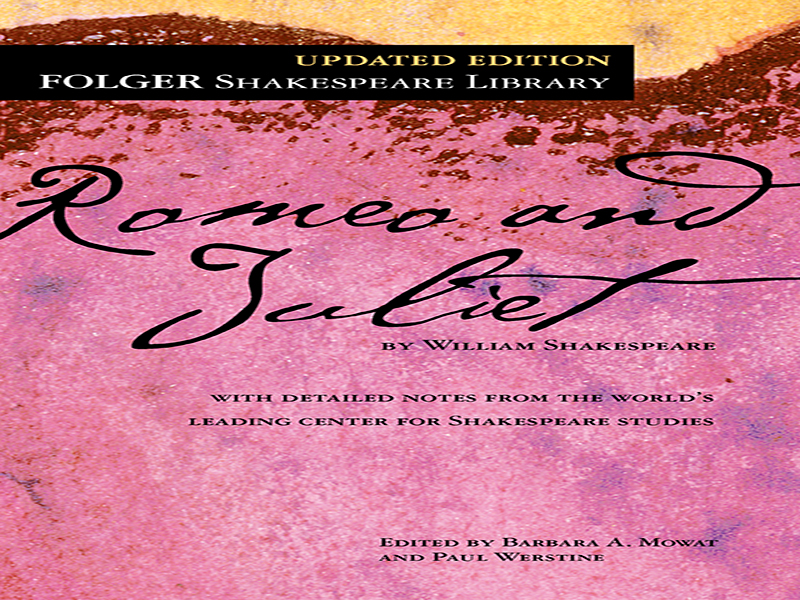- عنوان: Romeo and Juliet
- نویسنده: William Shakespeare
- سال انتشار: 1998
- تعداد صفحه: 218
- زبان اصلی: انگلیسی
- نوع فایل: pdf
- حجم فایل: 1.55 مگابایت
رومئو و ژولیت، حتی در نسخههای مثلهشدهای که تماشاگران قرن هجدهم میشناختند، همیشه یکی از محبوبترین نمایشنامههای شکسپیر بوده است. از سال 1845، زمانی که شارلوت و سوزان کوشمن سرانجام نسخهای را به صحنه آوردند که به نسخه اصلی شکسپیر نزدیک میشد، این وسیله در بین بازیگران و هنرپیشهها به طور یکسان، در هر دو سوی اقیانوس اطلس بود. و برخی از بزرگ ترین نام های تئاتر با آن مرتبط بوده اند. در سال های اخیر مخاطبان در نسخه های سینمایی و تلویزیونی نیز از آن لذت برده اند. در میان دانشمندان حرفه ای، این نمایش شور و شوق کمتری برانگیخته است. در این ربع ستایش از نبوغ زبان، درخشندگی شخصیتپردازیها و به تصویر کشیدن عشق جوان میشنود. اما این ستایش غالباً با این اعتراف ناخوشایند است که رومئو و ژولیت در برابر سنجش قوانینی که معمولاً در تراژدیهای بعدی شکسپیر اعمال میشود مقاومت میکند. منتقدان علمی همچنان به ابراز تردید در مورد تأکید بر ترحم، فقدان هدف اخلاقی، و آنچه به نظر می رسد تغییر لحن هوس انگیز است، به ویژه بین دو عمل اول و سه عمل آخر، ابراز تردید می کنند. چنین تردیدهایی در میان خوانندگان مدرن قابل درک است، اما ممکن است سوال شود که آیا الیزابتی ها آنها را احساس می کردند یا حتی می فهمیدند. ظاهراً اکثر معاصران شکسپیر هنوز پایان دادن به مرگ را شرط اصلی تراژدی میدانستند. و از آنجایی که رومئو و ژولیت 6 مرگ را پیشنهاد کردند، پنج تای آنها روی صحنه و دو تای آنها مرگ قهرمانهای داستان، تماشاگران آن روزها احتمالاً آن را غمانگیزتر از بسیاری از نمایشنامههایی میدانستند که چنین برچسبگذاری شدهاند. تماشاگران الیزابتی نیز این اعتراض را که نمایشنامه فاقد هدف اخلاقی است به همان اندازه عجیب می دانستند. آنها با آموزش می دانستند که در مورد عاشقان جوان پرشور که والدین خود را فریب می دادند و از رهیبان مشاوره می خواستند چه فکری کنند. آرتور بروک، که تاریخ غم انگیز رومئوس و ژولیت (1562) به احتمال زیاد تنها منبع شکسپیر بود، همه را اینگونه بیان کرده بود: برای این منظور (خواننده خوب) این مطلب غم انگیز نوشته شده است تا برای تو عده ای از عاشقان بدبخت را توصیف کند. خود را به هوس ناصادقانه می کشانند، از اختیار و نصیحت والدین و دوستان غفلت می کنند، مشاوره های اصلی خود را با غیبت های مستانه، و سرخ کن های خرافی (ابزارهای طبیعی مناسب بی عفتی) ارائه می دهند و تمام ماجراهای پریل را برای آن آرزوی ما تلاش می کنند، اعتراف گوش شنوا (کلای فاحشه و خیانت) برای پیشبرد هدف خود، سوء استفاده از نام شرافتمندانه ازدواج قانونی، عبادت شرم از قراردادهای دزدی، در نهایت، به هر وسیله زندگی غیر صادقانه، عجله به سوی مرگ ناخوشایند. علاوه بر این، الیزابتی ها همچنین می دانستند که خودکشی کار شیطان است و معمولاً به معنای لعنت است. از نظر آنها، بنابراین، رومئو و ژولیت باید به طور خودکار دارای اهمیت اخلاقی فراوانی بوده باشند. احتمالاً باید به شکسپیر برای به چالش کشیدن این اعتقادات عمیق حسابرسان و خوانندگان معاصرش اعتباری قائل شد. زیرا، از قضا، این احساس مدرن که نمایشنامه او از نظر اخلاقی ناقص است، تا حدی ناشی از توانایی مدرن برای دیدن این است که شکسپیر واقعاً عشق رومئو و ژولیت را تایید کرده است، فریبکاری های آنها را چشم پوشی کرده، و مقصر مرگ آنها را به گردن می اندازد، حتی اگر با خودکشی، بر بزرگانشان
Romeo and Juliet, even in the mutilated versions that Restoration and eighteenth-century audiences knew, has always been one of Shakespeare’s most popular plays. Since 1845, when Charlotte and Susan Cushman finally brought a version approaching Shakespeare’s original back to the stage, it has been a coveted vehicle among actors and actresses alike, on both sides of the Atlantic; and some of the theater’s greatest names have been associated with it. In recent years audiences have also been enjoying it in film versions and on television. Among professional scholars the play has sparked less enthusiasm. In this quarter one hears praise for the ingenuity of the language, for the brilliance of the characterizations, and for the portrayal of young love; but such praise is frequently qualified by the uneasy admission that Romeo and Juliet resists measurement by the rules conventionally applied to Shakespeare’s later tragedies. Scholarly critics continue to express misgivings about the emphasis on pathos, the absence of ethical purpose, and what appears to be a capricious shifting of tone, particularly between the first two acts and the last three. Such misgivings among modern readers are understandable, but one may question whether the Elizabethans would have felt or even understood them. Apparently most of Shakespeare’s contemporaries still considered an ending in death the principal requirement for tragedy; and since Romeo and Juliet offered six deaths, five of them on stage and two of them the deaths of protagonists, audiences in those days probably thought it more tragic than many plays so labeled. Elizabethan audiences would have found equally strange the objection that the play lacks ethical purpose. They knew by training what to think of impetuous young lovers who deceived their parents and sought advice from friars. Arthur Brooke, whose Tragicall Historye of Romeus and Juliet (1562) was most likely Shakespeare’s only source, had spelled it all out as follows: To this ende (good Reader) is this tragicall matter written, to describe unto thee a coople of unfortunate lovers, thralling themselves to unhonest desire, neglecting the authoritie and advise of parents and frendes, conferring their principall counsels with dronken gossyppes, and superstitious friers (the naturally fitte instrumentes of unchastitie) attemptyng all adventures of peryll, for thattaynyng of their wished lust, usying auriculer confession (the kay of whoredome, and treason) for furtheraunce of theyre purpose, abusyng the honorable name of lawefull mariage, the cloke the shame of stolne contractes, finallye, by all means of unhonest lyfe, hastyng to most unhappy deathe. In addition, Elizabethans also knew that suicide was the devil’s business and usually meant damnation; in their view, therefore, Romeo and Juliet must have had automatically an abundance of ethical import. Shakespeare probably should be given some kind of credit for not challenging these deep-seated convictions of his contemporary auditors and readers; for, ironically, the modern feeling that his play is ethically deficient stems partly from the modern ability to see that Shakespeare has really approved the love of Romeo and Juliet, condoned their deceptions, and laid the blame for their deaths, even though by suicide, upon their elders.
این رمان را از لینک زیر بصورت رایگان دانلود کنید.
Download: Romeo and Juliet




































نظرات کاربران